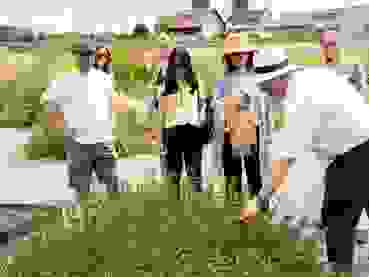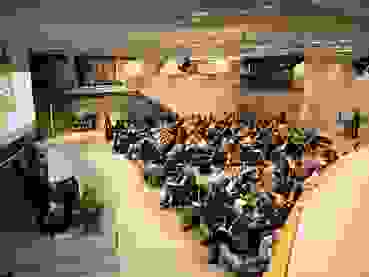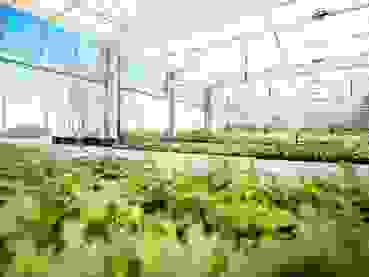
Remotiv at the Black Sea – Symposium on Phytotherapy at Ovidius University in Constanţa
From 3rd to 5th November a symposium on phytotherapy took place at the Ovidius University in Constanţa. Ovidus University, located in Romania’s largest port city, has been a founding member of the Black Sea University Network for 20 years.
November 14, 2017
During this time, there have been projects on naturopathic procedures running in both the Faculties of Pharmacy and Medicine. There is currently cooperations with the University of Münster/Germany and the ZHAW in Zurich/Switzerland. As part of this, there has been a regular exchange of lecturer, who among other things give lectures on phytotherapy and phytopharmacy. The symposium was intended to introduce students and professors from Romanian and international universities to these activities as well as to the numerous research ongoing projects on phytopharmaceutical and phytochemical issues at Ovidius University.
Dr. Bettina Nägele and Dr. Alexander Schenk from Max Zeller Söhne AG and Dr. Evelyn Wolfram from the ZHAW participated from Switzerland with guest lectures. Dr. Alexander Schenk, who has been teaching at Ovidius University for almost 17 years, gave the opening lecture titled “Extracts from Hypericum perforatum as anti-depressants – Quality control from plant cultivation to finished product guarantees therapy success”. Using the example of Remotiv, a Hypericum perforatum product marketed by Ewopharma in Romania, it became clear how all steps in the production from plant cultivation to the finished tablet, influence reproducible quality of an evidence-based phytopharmaceutical. Schenk showed how plant sort selection and the implementation of harvesting trial results have led to a St. John’s wort extract with as low as possible hyperforin content which means and a reduced risk of interaction with other drugs.

Lecture of Dr. Alexander Schenk (Analytical Development Manager, Zeller)

Lecture of Dr. Bettina Nägele (Laboratory Technician, Zeller)
Dr. Bettina Nägele’s presentation “Validation of phytopharmaceutical analysis methods” further contributed to the symposium’s clear focus on evidence-based and quality-related phytopharmaceuticals. Dr. Evelyn Wolfram continued the theme with her presentation “Hyphenations of HPTLC with Bioassay and MS for Extended Information Gained from Phytochemical Quality Control Analysis”.
The large auditorium of the main building on the campus near the seaside Mamaia was almost completely filled. Numerous interesting discussions developed later around the poster exhibition in the hall in front of the large auditorium. The Swiss delegation had contributed to the poster exhibition with a total of four posters on pyrrolizidine alkaloids, UHPLC analysis of sennosides and TLC-identification of several natural components in Fig syrup with Senna. Many of the posters dealt with phytochemistry and therapeutic benefits of marine organisms, a specialty of the departments of pharmacy, biology and medicine of Ovidius University.
Also, the possibility of sightseeing in Constanta -the city was founded by the Greeks under the name Tomis more than 3000 years ago- was used by numerous participants of the symposium. In the historic marketplace, there is a statue of the Roman poet Ovid, the eponym of the university. In 8 AD Emperor Augustus banished the author of “Methamorphoses” to Tomis. Whatever the reason, Constanta is a most attractive place and many of the symposium delegates were very happy to take advantage of the sightseeing opportunities the city offered.

Statue Ovid Constanta
Topics
Filter blog posts by topic by clicking on the tags.





